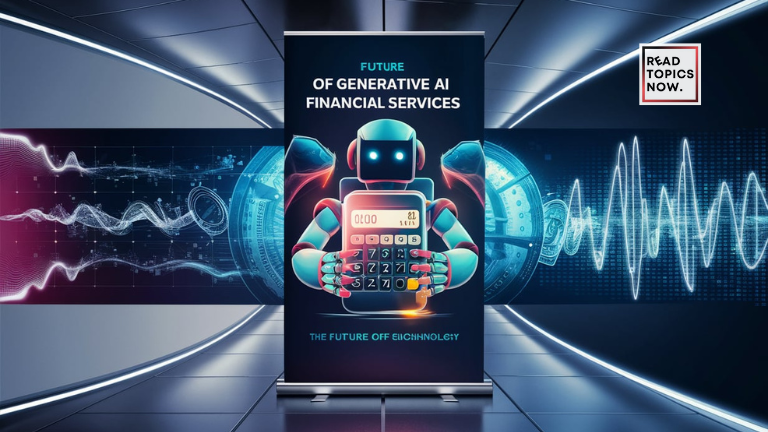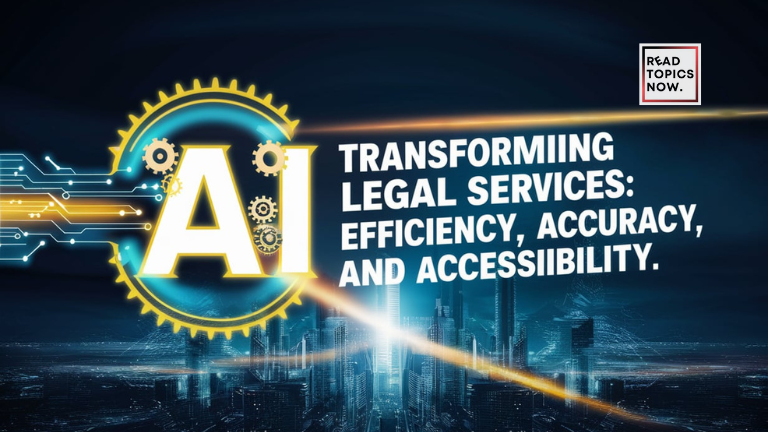
Famous Indian MMA Fighters List. Indians in MMA & UFC

The Transformative Impact of Generative AI on Professional Services in 2024
Introduction to Generative AI in Professional Services
Generative AI (GenAI) is revolutionizing the professional services landscape. By automating complex tasks, enhancing decision-making processes, and offering innovative solutions, GenAI is driving unprecedented efficiencies and capabilities across various industries. As we move into 2024, the integration of GenAI into professional services is not just a trend but a pivotal shift that promises to redefine industry standards and client expectations.
The Role of Generative AI in Transforming Financial Services

Applications in Financial Services
Risk Management
Generative AI can analyze vast amounts of data to identify potential risks, predict creditworthiness, and detect fraudulent activities.
Personalized Banking
AI-powered chatbots can offer tailored financial advice, assist with transactions, and provide 24/7 customer support.
Portfolio Management
Generative AI can optimize investment portfolios, predict market trends, and identify lucrative opportunities.
Benefits
Enhanced Efficiency
Automating routine tasks and processes.
Improved Accuracy
Reducing errors and inconsistencies.
Personalized Experiences
Offering tailored financial services and advice.
Challenges and Limitations of Gen AI for Financial Services
Data Quality
AI is only as good as the data it’s trained on.
Regulatory Frameworks
Ensuring compliance with evolving regulations and ethical standards.
Cybersecurity
Protecting sensitive financial data from potential AI-related risks.
The Future of Generative AI for Financial Services
Generative AI is poised to revolutionize the financial services industry, enabling institutions to focus on high-value tasks, improve customer outcomes, and drive innovation. As this technology continues to evolve, it’s essential for financial professionals to embrace its potential, address its challenges, and shape its future applications.
The Role of Generative AI in Legal Services

Enhancing Legal Research and Documentation
GenAI significantly accelerates legal research by sifting through vast amounts of legal data to identify relevant precedents, statutes, and case laws. This capability not only saves time but also ensures a higher degree of accuracy and comprehensiveness in legal documentation. AI-powered tools like natural language processing (NLP) are now capable of drafting contracts, legal briefs, and other documents, reducing the workload on legal professionals and minimizing human error.
Predictive Analytics in Legal Outcomes
Predictive analytics, powered by GenAI, is transforming how legal professionals approach case strategies. By analyzing historical data, AI can predict the potential outcomes of legal proceedings, helping attorneys to make informed decisions and develop robust case strategies. This predictive capability enhances the chances of favorable outcomes and improves client satisfaction.
GenAI in Financial Services
Automated Financial Analysis and Reporting
In the financial sector, GenAI is streamlining processes by automating financial analysis and reporting. AI algorithms can analyze market trends, financial statements, and economic indicators to generate insightful reports. These automated reports provide financial analysts and advisors with precise, data-driven insights, enabling better investment strategies and risk management.
Fraud Detection and Prevention
GenAI is also playing a critical role in fraud detection and prevention. Machine learning algorithms can monitor transactions in real-time, identifying suspicious activities and potential fraud with greater accuracy than traditional methods. This proactive approach to fraud prevention not only protects financial institutions but also enhances customer trust and security.
Advancements in Healthcare Through GenAI
Personalized Patient Care
In healthcare, GenAI is enabling personalized patient care by analyzing patient data to recommend tailored treatment plans. AI-driven tools can consider a patient’s medical history, genetic information, and lifestyle factors to suggest the most effective treatment options. This personalized approach improves patient outcomes and optimizes healthcare resources.
Drug Discovery and Development
GenAI is accelerating drug discovery and development by simulating biological processes and predicting the efficacy of new compounds. AI can analyze vast datasets from clinical trials and research studies to identify potential drug candidates, significantly reducing the time and cost associated with bringing new drugs to market.
GenAI in Marketing and Customer Service
Enhanced Customer Insights
In marketing, GenAI provides deeper customer insights by analyzing consumer behavior, preferences, and trends. AI-powered analytics tools can segment audiences more effectively and predict future purchasing behaviors, enabling marketers to create highly targeted and personalized campaigns that resonate with their audience.
Automated Customer Service
GenAI-driven chatbots and virtual assistants are transforming customer service by providing instant and accurate responses to customer inquiries. These AI tools can handle a wide range of customer interactions, from answering common questions to resolving complex issues, improving customer satisfaction and reducing response times.
Some Top Questions Regarding “ Generative AI in Professional Services”
Based on the search results, here are some common themes:
What is GenAI and how is it transforming professional services?
This question reflects the growing interest in understanding the basic concept of Generative AI and its impact on various professional sectors, including law, finance, and consulting.
How can GenAI improve efficiency in professional services?
Many inquiries focus on the potential of GenAI to automate tasks, streamline workflows, and enhance productivity within organizations.
What are the ethical considerations of using GenAI in professional services?
As GenAI becomes more integrated into professional practices, questions regarding ethical implications, data privacy, and regulatory compliance are increasingly prevalent.
What are the top applications of GenAI in legal practice?
Specifically in the legal field, there is significant interest in how GenAI can assist with document review, legal research, and case management.
What skills do professionals need to work effectively with GenAI?
As the technology evolves, professionals are curious about the skills and training required to leverage GenAI tools effectively in their work.
What are the top applications of GenAI in legal practice?
GenAI has significant potential to assist legal professionals with tasks such as document review, legal research, contract drafting, and case management. For example, GenAI can quickly analyze large volumes of legal documents, identify key information, and summarize findings. It can also help generate first drafts of contracts and briefs based on precedents and guidelines.
How can GenAI improve efficiency in professional services?
GenAI promises to create efficiency by automating repetitive tasks, allowing professionals to focus on higher-value work. For example, in tax and accounting, GenAI can help with tax return preparation, spotting irregularities, and compliance reporting. In risk and fraud, it can assist with risk assessment and monitoring. By saving time on routine tasks, professionals can spend more time on strategic planning, client relationships, and professional development.
What are the ethical considerations of using GenAI in professional services?
Key ethical issues include data privacy, security, and the potential for misuse of GenAI-generated content. Professionals must ensure they are complying with data regulations, protecting client confidentiality, and maintaining appropriate oversight of AI-generated work product. There are also concerns about AI “hallucinations” – the generation of incorrect or misleading information. Careful selection of tools, training, and human review are essential to mitigate these risks.
How can professionals prepare their skills for working with GenAI?
Receiving proper training on GenAI tools and their applications is critical to using them effectively. Training should cover the capabilities and limitations of the technology, best practices for prompting and reviewing outputs, and the ethical implications of AI in professional work. Professionals should also develop skills in prompt engineering, data analysis, and human-AI collaboration. Proactively building these competencies will help professionals adapt to the increasing presence of GenAI in their fields.
What are the best practices for integrating GenAI into existing workflows
Here are some key best practices for effectively integrating Generative AI (GenAI) into existing enterprise workflows:
Ensure Data Quality and Accessibility
- Provide GenAI models with high-quality, relevant data to train on and generate accurate outputs.
- Implement processes to keep training data current and representative of the domain.
- Make data easily accessible to GenAI systems through APIs or data pipelines.
Continuously Monitor and Evaluate Performance
- Track key metrics like response accuracy, generation speed, customer satisfaction, and engagement.
- Regularly review GenAI outputs for errors or biases and retrain models as needed.
- Gather feedback from users to identify areas for improvement.
Prepare the Organization
- Clearly communicate the benefits and risks of GenAI to employees.
- Provide training on proper use of GenAI tools and ethical considerations.
- Engage employees in testing and providing feedback on GenAI integrations.
Identify High-Impact Use Cases
- Focus initial efforts on high-volume, repetitive tasks that can be automated.
- Look for opportunities to augment human capabilities rather than replace them.
- Prioritize use cases that will generate the most time savings and efficiency gains.
Ensure Responsible and Ethical Use
- Establish clear guidelines for appropriate use of GenAI outputs.
- Implement safeguards to prevent misuse of sensitive data or generation of harmful content.
- Maintain human oversight and the ability to override GenAI decisions.
Conclusion
As generative AI continues to evolve, its impact on professional services will deepen, driving innovation, efficiency, and improved outcomes across various sectors. The advancements in legal services, financial analysis, healthcare, and marketing demonstrate the transformative potential of GenAI. Embracing these technologies is no longer optional but essential for staying competitive in a rapidly changing landscape. As we look to the future, the integration of GenAI will undoubtedly pave the way for new possibilities and unprecedented advancements in professional services.
Get Curated Post Updates!
Sign up for my newsletter to see new photos, tips, and blog posts.

With a decade of experience in technical fields, I craft insightful technical blogs that enhance business operations and drive growth, leveraging my expertise to deliver valuable, industry-specific knowledge and solutions.





